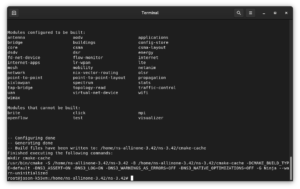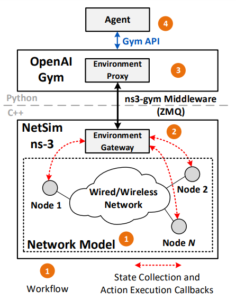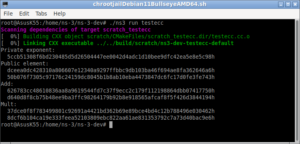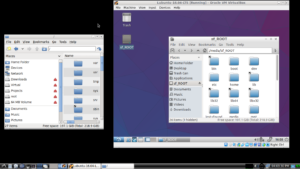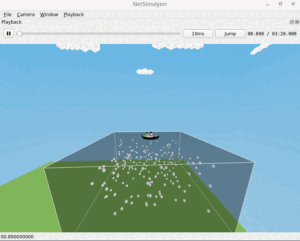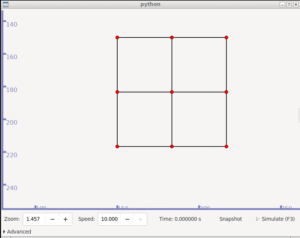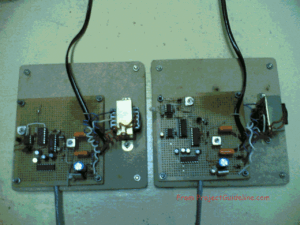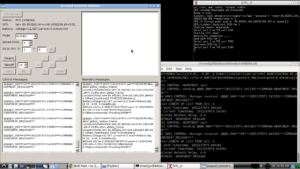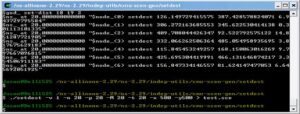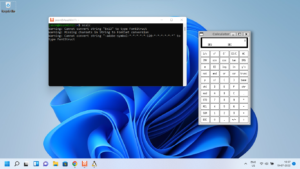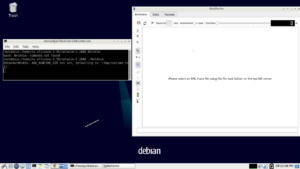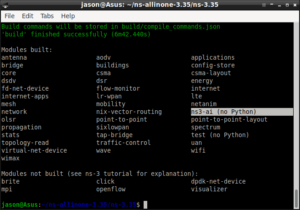In disciplines such as “Physics” and “Mathematics”, people dare to start a Ph.D degree. But most of the people who are studying ‘Computer’ related sciences, simply believe that they are ready to start a Ph.D degree, just after completing their master’s degree.
This article explains the way of starting a genuine research/project for a scholarly research submission. This will explain when a student/scholar will be ready to get some research assistance from another person if he/she will be needing it. I mean, at the time of preparing your research proposal, you will not able to present your ideas in a technically correct way – or what you are trying to present/implement will be a practically impossible idea. So, a beginner will need a considerable amount of time to understand the reality of what he/she trying to do as research.
Selection of Research Area and Title for the Research
While selecting a research title and preparing a research proposal, usually most scholars/students will be attracted by some ‘jargons’ and try to do a project or research proposal with an attractive title like the below one:
“A Fast, Power-efficient, Swarm Intelligence based Deep Learning Routing Protocol for VANET using SDN-based 6G Networks”
For people who do not know what is a ‘ jargon’: As per Wikipedia, “Jargon is the specialized terminology associated with a particular field or area of activity. Jargon is normally employed in a particular communicative context and may not be well understood outside that context.[1]”.
On the website [2], you may find the following definitions for the word ‘jargon’ :
- special words and phrases that are used by particular groups of people, especially in their work
- words and phrases used by particular groups of people, esp. in their work, that are not generally understood
- the language used by a particular group of people, especially in their work, and which most other people do not understand
Why does a student/scholar opt to or tend to give one such attractive title with jargons?
 The reason is simple. Most of his/her audience and fellow students and scholars will not be familiar with most of the jargons that he/she used in the title as well as in the content of the research/project proposal. So, initially, it will give much attention/attraction to the proposal. It may give a good impression on the student or scholar who is presenting it – it will help to project/impersonate that student/scholar as an “Intelligent Person” in front of others. So, his/her research supervisor or guide may get impressed and easily approve that ‘novel'(?) proposal. Even during the initial research/project presentations, these jargons will attract a lot of audience at the presentation hall. Even for that student/scholar, it will give freedom and easiness for preparing a PowerPoint presentation with a lot of “bullets” or a text document with a lot of paragraphs with colourful diagrams.
The reason is simple. Most of his/her audience and fellow students and scholars will not be familiar with most of the jargons that he/she used in the title as well as in the content of the research/project proposal. So, initially, it will give much attention/attraction to the proposal. It may give a good impression on the student or scholar who is presenting it – it will help to project/impersonate that student/scholar as an “Intelligent Person” in front of others. So, his/her research supervisor or guide may get impressed and easily approve that ‘novel'(?) proposal. Even during the initial research/project presentations, these jargons will attract a lot of audience at the presentation hall. Even for that student/scholar, it will give freedom and easiness for preparing a PowerPoint presentation with a lot of “bullets” or a text document with a lot of paragraphs with colourful diagrams.
For example, the scholar/student will have the following points to discuss even from the title itself :
- What is Swarm Intelligence? – (he will talk about the behaviour of ants and bees and whatever biological entities that he sees on the universe)
- What is Deep Learning? – (he will talk about machine learning, AI, RL, CNN etc etc.,,)
- What are Routing Protocols? – (he will have an opportunity to talk about a handful of different families of routing protocols – proactive, reactive, bio-inspired etc., etc.)
- What is a VANET? – (he will have a chance to talk about all the networking technologies and may try to tell why VANET is different from the rest of the technologies)
- What is an SDN? – (he will argue why software-defined networking is superior to other technologies)
- What is 6G? – (he will talk from 1G to 5G and may argue why 6G is good)
- finally the first two things: “fast, power-efficient” – he will argue how the integration of the above-mentioned technologies will make things work fast and power-efficient. (the scholar/student will use all his/her imagination to make a point here)
Even though this ‘funny’ title is my own imagination for illustration, trust me – in the past, I interacted with a lot of students and scholars who come up with titles for their projects/research works that were even more complex than this one. Simply, students and scholars tend to incorporate all the attractive technologies of the world inside their research proposals to make them look good and get them accepted by their supervisors and university.
Why completing typical research with the above title could not be possible?
The six different jargons used in that title itself belong to six different technologies. Of course, one can understand and accept that it is not possible for an average student/scholar for implementing all those 6 technologies inside real-world working application hardware. Because he/she will not have access to the hardware and software of these six different technologies. Or at least the research/researcher will not have the necessary fund or even time for implementing all those things in real hardware.
So, the only solution is selecting a suitable simulator for simulating all these six technologies. The following points should be considered while trying to use these different technologies under a simulator:
- If you read one of my posts [3] “Confusions in doing VANET simulations using DSRC/WAVE under ns-3”, he/she can understand the present limitations of ns-3 and understand the lack of expertise needed to simulate any VANET routing protocol using DSRC/WAVE under ns-3.
- Similarly, if you try to use deep learning, at least you should learn to use the Gym AI module of ns-3[4].
- If you try to use SDN under ns-2, first you may need to learn to install an SDN architecture using the module[5] and you may later recognize that the SDN” related things that are implemented in that extension are very very basic.
- Further, if you try to simulate 6G under ns-3, then you may need to use a module like the one discussed in [6] and after using that, you may realize that it is not a complete 6G solution.
According to my experience and belief, for an average student or scholar, it will take several years to really understand and master these technologies using the available, implemented simulation modules.
So, if the student/scholar who submitted a project/research proposal (with the above-mentioned title with full of ‘jargons’) trying to get some “programming assistance through the internet” for implementing his/her that routing protocol, then definitely he/she will be cheated by a ‘programmer/service provider’ who he/she found on the internet. Because no one in the world can really able implement such an idiotic idea. Even if one will be able to implement it on a simulator (by incorporating the six above-mentioned technologies), definitely the implemented routing protocol will never be a “Fast and Power Efficient” one.
Finding an Implementable Idea for Doing a Genuine Research
For doing genuine scholarly research with some genuine implementation, we have to find answers to the following questions in the order they appear in this list:
- How to select a suitable research domain and problem for doing scholarly research work?
- How to submit a ‘safe’ research proposal with a suitable title for a scholarly research work?
- How to start the preliminary survey on that research domain and problem and how it can be used for publishing a journal/conference paper?
- How to select previous reference works and how to evaluate them?
- How to develop a framework for simulation and analysis? Why we will need such a framework?
- How can we do our first protocol evaluation kind of work for producing quality outputs that can be used for publishing a journal paper?
- How can we implement our own protocol and make it work better than the reference protocols for producing quality outputs that can be used for publishing a journal paper?
- How to make elegant, quality papers?
- How to organize our research contributions and submit them as a thesis?
- How to manage the final research defence?
The following section tries to answer the above questions.
Let us find answers to the above questions one by one.
After understanding the risks and limitations of the above-said aspects, now the student/scholar will be ready to prepare a ‘safe’ research proposal with a ‘safe’ title.
So instead of the previously decided title:
“A Fast, Power-efficient, Swarm Intelligence based Deep Learning Routing Protocol for VANET using SDN-based 6G Networks”
He will choose a simple title like :
“Study on VANET routing protocols”
or
“Implementing a New VANET routing protocol”
or
“Implementing a New, Fast routing protocol for VANET”
And later, after successfully ending with some working model, the scholar may decide to give a more specific and attractive title. For example, if the scholar was able to improve the performance of an existing VANET routing protocol by adding some geography-based information, then, he/she may now name his research as:
“A Novel Geographic Routing Protocol for Time Sensitive Message Decimation in VANET”
Now the scholar will be ready to explain each and every aspect of this research.
References
- https://en.wikipedia.org/wiki/Jargon
- https://dictionary.cambridge.org/dictionary/english/jargon
- https://www.projectguideline.com/confusions-in-doing-vanet-simulations-using-dsrc-wave-under-ns-3/
- https://www.projectguideline.com/installing-ns3-gym-ai-model-under-chroot-jail/
- https://www.projectguideline.com/doing-software-defined-networkingsdn-simulation-under-ns-3/
- https://www.projectguideline.com/possibility-of-simulating-6g-thz-terasim-along-with-ms-van3t/

 Discuss Through WhatsApp
Discuss Through WhatsApp

